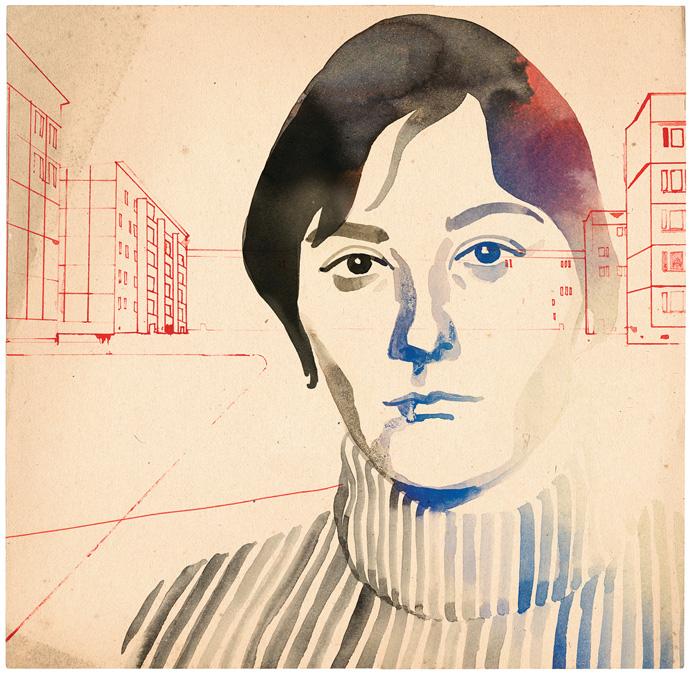
In Sally Rooney’s “Beautiful World, Where Are You,” Marxism is demonstrated with a plastic-wrapped sandwich in a corner shop. In Simone de Beauvoir’s “The Mandarins,” it is used by argumentative newspaper editors at a Christmas party. But in Brigitte Reimann’s 1963 novel “Siblings” (Transit Books), newly translated into English by Lucy Jones after the uncensored manuscript was found by chance last spring, it is done in the coffee room of a coal briquette factory. In 1959, the ruling Socialist Unity Party of the German Democratic Republic announced that its writers were to follow the “Bitterfeld Way,” and spend time in industrial plants—to rub off their élitism, while bringing culture to the working man. “Grab your pen, comrade, the German socialist national culture needs you!” the not-so-snappy slogan went.
Reimann, the daughter of a bank clerk from a family of Cologne burghers, had decided to become a writer at the age of fourteen, when she was recovering from polio. At seventeen, she published her first book of plays; at twenty, she married a machine fitter, gave birth to a child who died the same day, and attempted suicide not long afterward. By the age of twenty-seven, she’d been a member of the G.D.R. writers’ union for four years and had written some promising novellas while teaching to make ends meet. In 1960, she heeded the Party’s call. Having divorced her husband (the first of four), she moved to a remote town in Saxony in order to work at a coal-production plant. There, with her lover, a fellow writer, she both worked on the factory floor and organized a cultural brigade among the other laborers, reading them her stories and teaching them to write their own. That was the Bitterfeld Way.
Esta historia es de la edición April 03, 2023 de The New Yorker.
Comience su prueba gratuita de Magzter GOLD de 7 días para acceder a miles de historias premium seleccionadas y a más de 9,000 revistas y periódicos.
Ya eres suscriptor ? Conectar
Esta historia es de la edición April 03, 2023 de The New Yorker.
Comience su prueba gratuita de Magzter GOLD de 7 días para acceder a miles de historias premium seleccionadas y a más de 9,000 revistas y periódicos.
Ya eres suscriptor? Conectar

ART OF STONE
\"The Brutalist.\"

MOMMA MIA
Audra McDonald triumphs in \"Gypsy\" on Broadway.

INTERNATIONAL AFFAIRS
\"Black Doves,\" on Netflix.

NATURE STUDIES
Kyle Abraham's “Dear Lord, Make Me Beautiful.”

WHAT GOOD IS MORALITY?
Ask not just where it came from but what it does for us

THE SPOTIFY SYNDROME
What is the world's largest music-streaming platform really costing us?

THE LEPER - LEE CHANGDONG
. . . to survive, to hang on, waiting for the new world to dawn, what can you do but become a leper nobody in the world would deign to touch? - From \"Windy Evening,\" by Kim Seong-dong.

YOU WON'T GET FREE OF IT
Alice Munro's partner sexually abused her daughter. The harm ran through the work and the family.

TALK SENSE
How much sway does our language have over our thinking?

TO THE DETECTIVE INVESTIGATING MY MURDER
Dear Detective, I'm not dead, but a lot of people can't stand me. What I mean is that breathing is not an activity they want me to keep doing. What I mean is, they want to knock me off. My days are numbered.